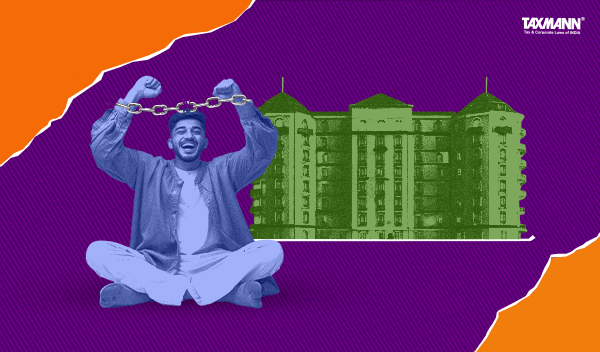Saint-Gobain Cleared of Allegation of Co-Branding & Forced Purchase as Informant Couldn’t Produce Valid Agreement | CCI
- Blog|News|Competition Law|
- 3 Min Read
- By Taxmann
- |
- Last Updated on 26 July, 2024

Case Details: XYZ (Confidential) v. Saint Gobain India (P.) Ltd. - [2024] 164 taxmann.com 577 (CCI)
Judiciary and Counsel Details
- Ms Ravneet Kaur, Chairperson, Ms Sweta Kakkad & Deepak Anurag, Member
Facts of the Case
In the instant case, information was filed u/s 19(1)(a) of the Competition Act, 2002 alleging certain anti-competitive practices in violation of sections 3 and 4 of the Act by Saint Gobain India Pvt. Ltd. (OP-1) and Compagnie De Saint- Gobain (‘OP-2’).
The Informant, a public-spirited person, filed instant information against a glass manufacturing company / OP, alleging certain anti-competitive practices in violation of sections 3(4) and 4 by OP on the grounds that OP with one of its processors/distributors proposed to enter into ‘Propel Project Participation Agreement’ which imposed exclusive supply and forced co-branding obligations upon these players in the distribution network of glass products.
It was alleged that, based on the said agreement and oral directions/guidance, processors/distributors were offered significant discounts if they purchased exclusively from OP. OP then approached large customers and negotiated prices directly with them. Also, processors and distributors were then forced to issue invoices at these prices.
In furtherance of these allegations, the Informant proposed two relevant markets. The first is the Market for the ‘production and sale of clear float glass in India’, and the second is the Market for the ‘production and sale of coated glass in India’. The Informant has requested the Commission to conduct an assessment and investigation in the said relevant markets.
As regards the first relevant product market, the ‘market for production and sale of clear float glass,’ the Informant submitted that the Commission had already accepted this market as a separate product market, in which the dominant position of OP-1 was examined.
With regard to the second relevant market, the Informant submitted that OP-1 is the market leader, having close to 19% market share, based on a market study report of TechSci Research of 2022. The informant stated that all other competitors have market shares significantly less than that of OP-1 in the coated glass market. The Informant further noted that even if the dominance of OP-1 is not established in the coated glass market, it enjoys significant market power.
Regarding abusive conduct, the Informant submitted that OP-1 exploited its influence in the relevant markets by forcing, directly or indirectly, downstream market players to deal exclusively with OP-1 and exclude other competitors. Additionally, OP-1 used its dominant position in the market for the ‘production and sale of clear float glass in India’ to enter into and protect its influence in the market for the ‘production and sale of coated glass in India’.
Based on these allegations, the Informant sought relief, praying for an investigation u/s 26(1) of the Act. It was noted that the informant was not able to produce a valid and subsisting copy of the agreement on which the entire allegations rested. Further, processors were free to charge prices from end users for value addition, and OP was not controlling it.
CCI Held
The CCI observed that no imposition of exclusive purchase obligation was observed from the ‘propel agreement’, which implied that the processor had a choice to procure clear float glass from other glass manufacturers, and offering discounts based on the volume of purchase was not anti-competitive, per se.
The CCI held that since conditions imposed on the processor, as per the said agreement, had objective justifications and no case was made out against OP in respect of either section 3(4) or 4, instant information was to be closed immediately under section 26(2) of the Act.
Disclaimer: The content/information published on the website is only for general information of the user and shall not be construed as legal advice. While the Taxmann has exercised reasonable efforts to ensure the veracity of information/content published, Taxmann shall be under no liability in any manner whatsoever for incorrect information, if any.

Taxmann Publications has a dedicated in-house Research & Editorial Team. This team consists of a team of Chartered Accountants, Company Secretaries, and Lawyers. This team works under the guidance and supervision of editor-in-chief Mr Rakesh Bhargava.
The Research and Editorial Team is responsible for developing reliable and accurate content for the readers. The team follows the six-sigma approach to achieve the benchmark of zero error in its publications and research platforms. The team ensures that the following publication guidelines are thoroughly followed while developing the content:
- The statutory material is obtained only from the authorized and reliable sources
- All the latest developments in the judicial and legislative fields are covered
- Prepare the analytical write-ups on current, controversial, and important issues to help the readers to understand the concept and its implications
- Every content published by Taxmann is complete, accurate and lucid
- All evidence-based statements are supported with proper reference to Section, Circular No., Notification No. or citations
- The golden rules of grammar, style and consistency are thoroughly followed
- Font and size that’s easy to read and remain consistent across all imprint and digital publications are applied



 CA | CS | CMA
CA | CS | CMA
